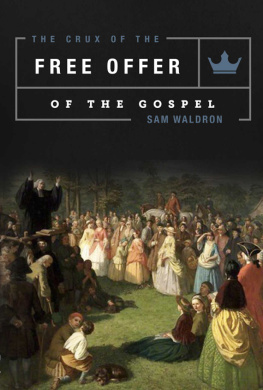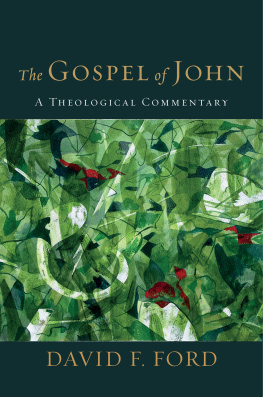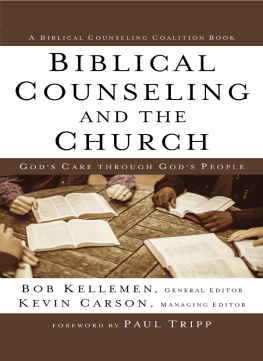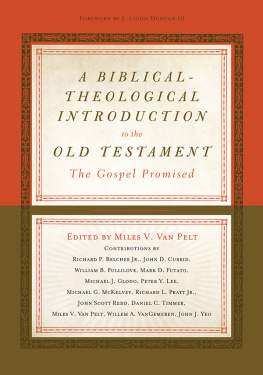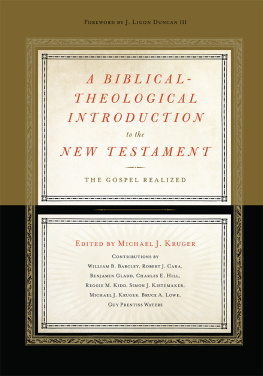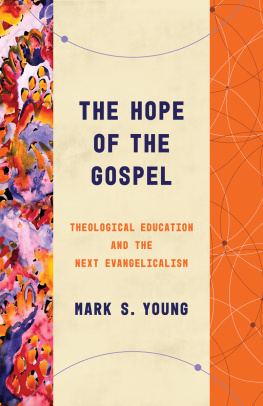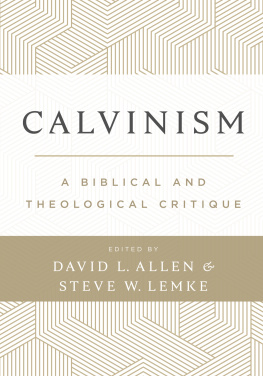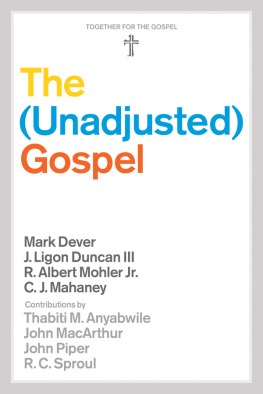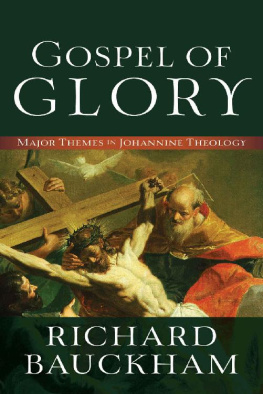I am thrilled that Dr. Waldron has taken up this vital subject. Those like myself who share Dr. Waldrons commitment to the Well-Meant Offer may not agree on every detail of every one of his arguments, but here they will find a clear-thinking, informed, thorough, and convincing treatment of the subject to be reckoned with. This book leaves few, if any, stones unturned or objections unaddressed. With the resurgence of Calvinism in our day, we should be greatly concerned that the kind of Calvinism promoted and proclaimed is of the true, historical, warmly-evangelical and biblical kind, not a distortion of it. Here is a book pointing the way. May it be read widely and greatly used of God to that end!
Jeffery Smith,
Pastor of Emanuel Baptist Church,
Coconut Creek, Florida
I am once again indebted to Sam Waldron for his precise exposition of the Scriptures regarding this critical issue facing the church. As always, he stands upon the Word of God and in the very center of the historical Reformed faith. This work not only substantiates the Free Offer of the gospel to all, but it will inspire the reader to be more diligent in the gospel ministry.
Paul Washer,
Director of HeartCry Mission Society
Can a Christian rightly say that God sovereignly determines whom he will save and sincerely offers Christ to everyone who hears the gospel? Sam Waldron gives us a solid basis to say Yes! His outline of sophisticated theological arguments makes constant reference to the Holy Scriptures to embolden preachers to preach unconditional election, particular redemption, and the Free Offer of the gospel.
Dr. Joel R. Beeke,
President of Puritan Reformed Theological Seminary,
Grand Rapids, Michigan
The Free Offer of the gospel defines a vital truth in the Reformed system of theology. As with his other writings, Sam Waldron explains and defends this doctrine with a lucid clarity and a compelling Scriptural argument. For any with concerns regarding the Free Offer, Waldron lays out its biblical necessity and theological coherence. This book will perform a great service in defending the churchs offer of Christ to all the world and will bless our Lord by unleashing through our passionate lips his cry for sinners to be saved.
Richard D. Phillips,
Senior Minister of Second Presbyterian Church,
Greenville, South Carolina




The Crux of the Free Offer:
A Biblical, Confessional, and Theological Explanation and Defense of the Well-Meant Offer of the Gospel
Copyright 2019 Sam Waldron
All rights reserved. Written permission must be secured from the author/publisher to use or reproduce any part of this book, except for brief quotations in critical reviews or articles.
Published by Free Grace Press
303 Hwy 287
Greenbrier, AR 72058
freegracepress.com
Cover design by Scott Schaller
scottshallerdesigns.com
Printed in the United States of America
ISBN: 978-1-59925-602-3
Contents
Introduction
The Foundational Assumption
A brief, historical defense of the idea that a Well-Meant
Offer is assumed in the Free Offer of the Gospel.
The historic documents which brought the confessional development sparked by the Reformation to its climax were the Westminster Confession (1644-46), the Savoy Declaration (1658), and the Second London Baptist Confession (1689). In chapter 7 of each, the Free Offer of the gospel is confessed and in identical language. The Westminster Confession and its daughter and grand-daughter confessions each speak of the covenant of grace, wherein he freely offereth unto sinners, life and salvation by Jesus Christ.
It is both the conviction and assumption of this book that the crux of the doctrine of the Free Offer of the gospel is Gods indiscriminate desire for the salvation of sinners. To put this in other words, at the core of the Free Offer of the gospel is what is called the Well-Meant Offer of the gospel. Though it may be well to speak of the Well-Meant Offer of the gospel for the sake of doctrinal clarity, I am jealous to affirm here that this Well-Meant Offer is both the natural and necessary implication of the Free Offer confessed by the climactic confessions of the Reformation. This conviction (that the Well-Meant Offer and God s i ndiscriminate d esire for the s alvation of s inners is the crux of the Free Offer) is also the conviction of its most vocal enemies.
The Free Offer in the confessional documents is and must be understood as a Well-Meant Offer. This historical affirmation could be defended at length. My purpose here is simply and briefly to mention the grounds upon which my conviction is based. I maintain that the Free Offer in the confessional documents is and must be understood as a Well-Meant Offer for a number of reasons.
Necessary Implication
First, it is, I think, the logical and necessary implication of a free offer. In fact, it seems to me that this is the implication of both the word, offer, and the word, free. Offer contains in it the notion of a proposal presented to someone which the one presenting it desires for that person to accept. An offer not presented with such intent or desire would be and should be regarded as insincere. What man proposes marriage to a woman without a desire that she should accept his proposal? What woman would regard such a proposal as authentic or genuine if it was not accompanied by the desire of the man for it to be accepted? The word free, however, emphasizes the notion of a desire that one should take the offer presented. An offer is presented with the desire that it should be taken by the one to whom it is presented. A Free Offer accentuates such desirethe Well-Meant character of the Offerby providing an extra incentive for the proposal to be accepted.
General Recognition
Second, that this is the meaning and implication of a Free Offer was (and is) generally recognized by the modern opponents of the Free Offer. I am referring specifically to the controversy over common grace in the Christian Reformed denomination. This controversy came to its denominational culmination in 1924. The Protestant Reformed Churches left the Christian Reformed because they (the Protestant Reformed) denied the Free Offer. They did so because they properly understood that a Free Offer was a Well-Meant Offeran Offer that contained common grace. The first point of common grace affirmed by the Christian Reformed was that there is also a certain favor or grace of God which he shows to His creatures in general. Herman Hanko, referencing the first point of common grace adopted by the Christian Reformed Church at the synod of 1924 and writing in the official journal of the Protestant Reformed Churches, can write:
In the discussions which followed the adoption of this statement of doctrine, the reference to the Free Offer was often called, het puntje van het eerste punt. (The main point of the first point.) While it is our intention to deal more specifically with this question at a later date, the point we wish to make now is that a denial of the Free Offer of the gospel is a part of the doctrinal confession of the Protestant Reformed Churches from their very beginning

